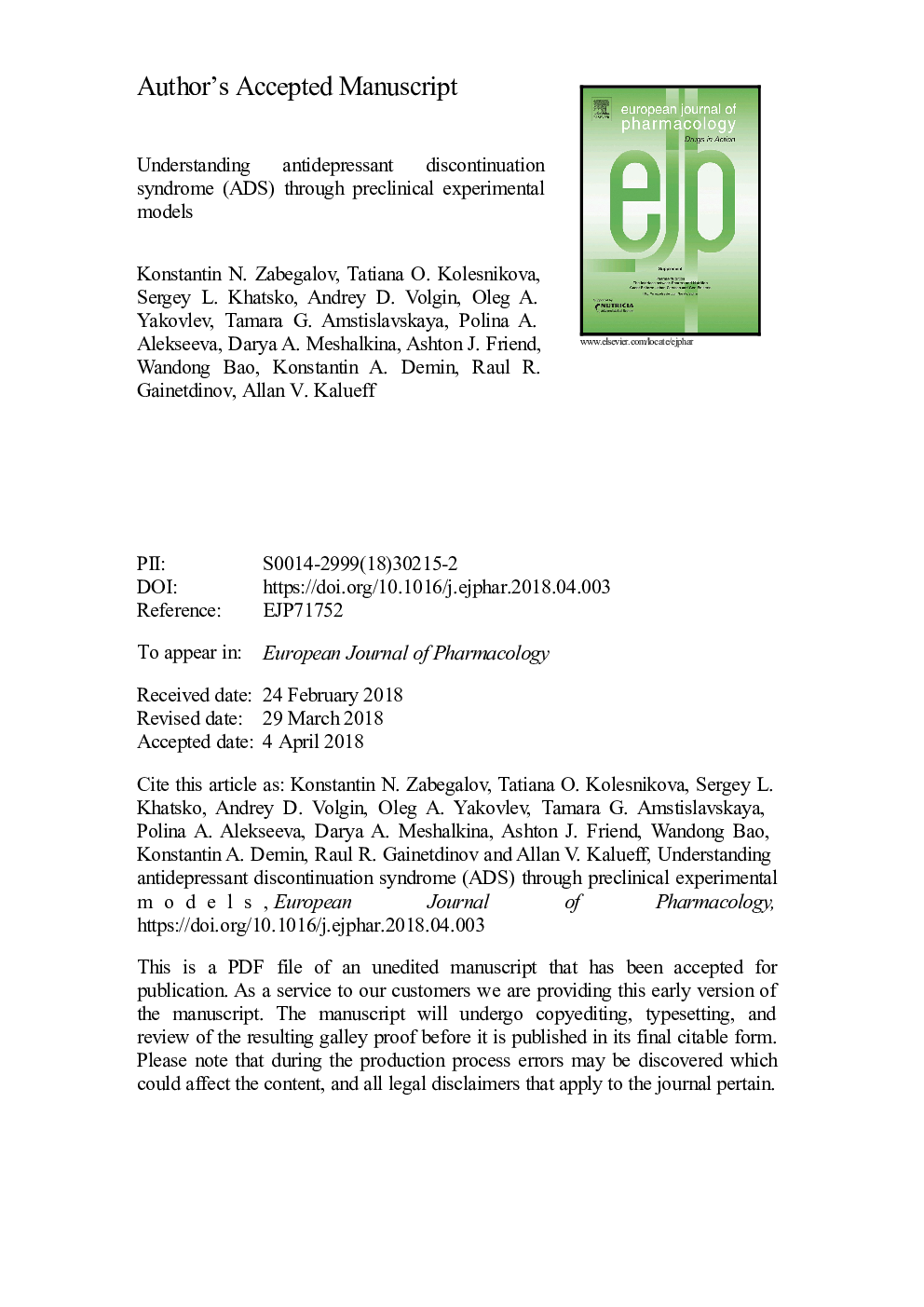| Article ID | Journal | Published Year | Pages | File Type |
|---|---|---|---|---|
| 8529048 | European Journal of Pharmacology | 2018 | 34 Pages |
Abstract
Antidepressant drugs are currently one of the most prescribed medications. In addition to treatment resistance and side effects of antidepressants, their clinical use is further complicated by antidepressant discontinuation syndrome (ADS). ADS is a common problem in patients following the interruption, dose reduction, or discontinuation of antidepressant drugs. Clinically, ADS resembles a classical drug withdrawal syndrome, albeit differing from it because antidepressants generally do not induce addiction. The growing clinical importance and prevalence of ADS necessitate novel experimental (animal) models of this disorder. Currently available preclinical models of ADS are mainly rodent-based, and study mostly serotonergic antidepressants and their combinations. Here, we systematically assess clinical ADS symptoms and discuss current trends and challenges in the field of experimental (animal) models of ADS. We also outline basic mechanisms underlying ADS pathobiology, evaluate its genetic, pharmacological and environmental determinants, and emphasize how using animal models may help generate important translational insights into human ADS condition, its prevention and therapy.
Related Topics
Life Sciences
Neuroscience
Cellular and Molecular Neuroscience
Authors
Konstantin N. Zabegalov, Tatiana O. Kolesnikova, Sergey L. Khatsko, Andrey D. Volgin, Oleg A. Yakovlev, Tamara G. Amstislavskaya, Polina A. Alekseeva, Darya A. Meshalkina, Ashton J. Friend, Wandong Bao, Konstantin A. Demin, Raul R. Gainetdinov,
